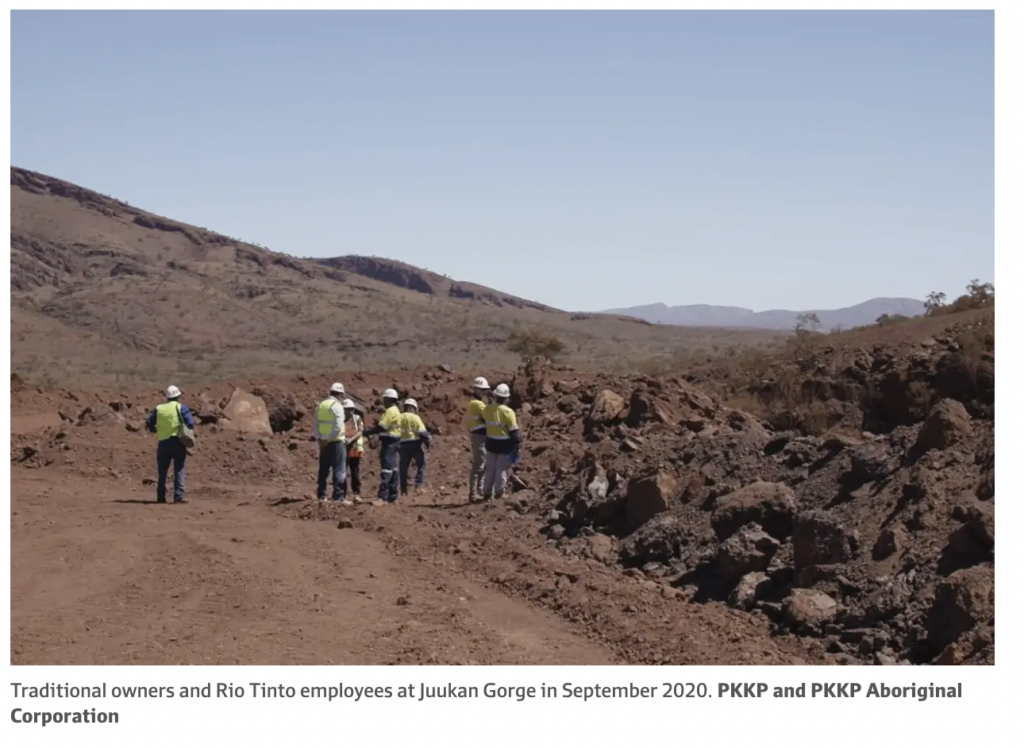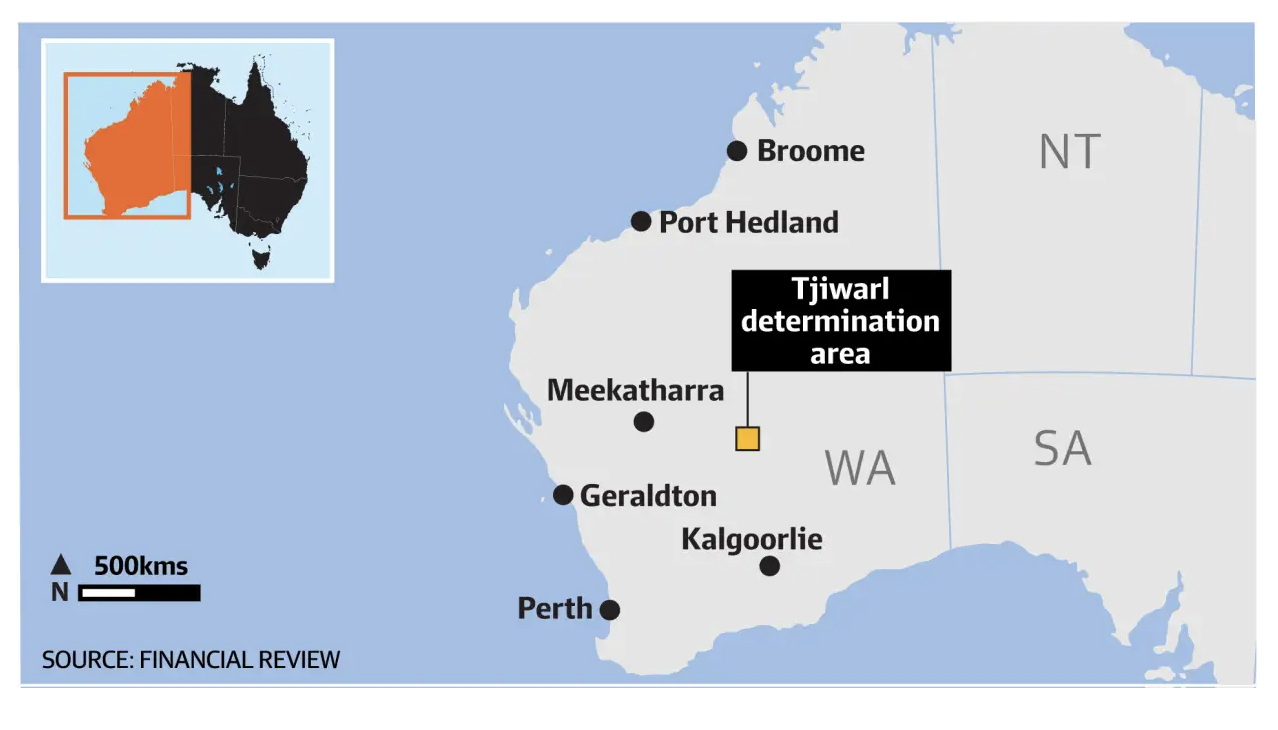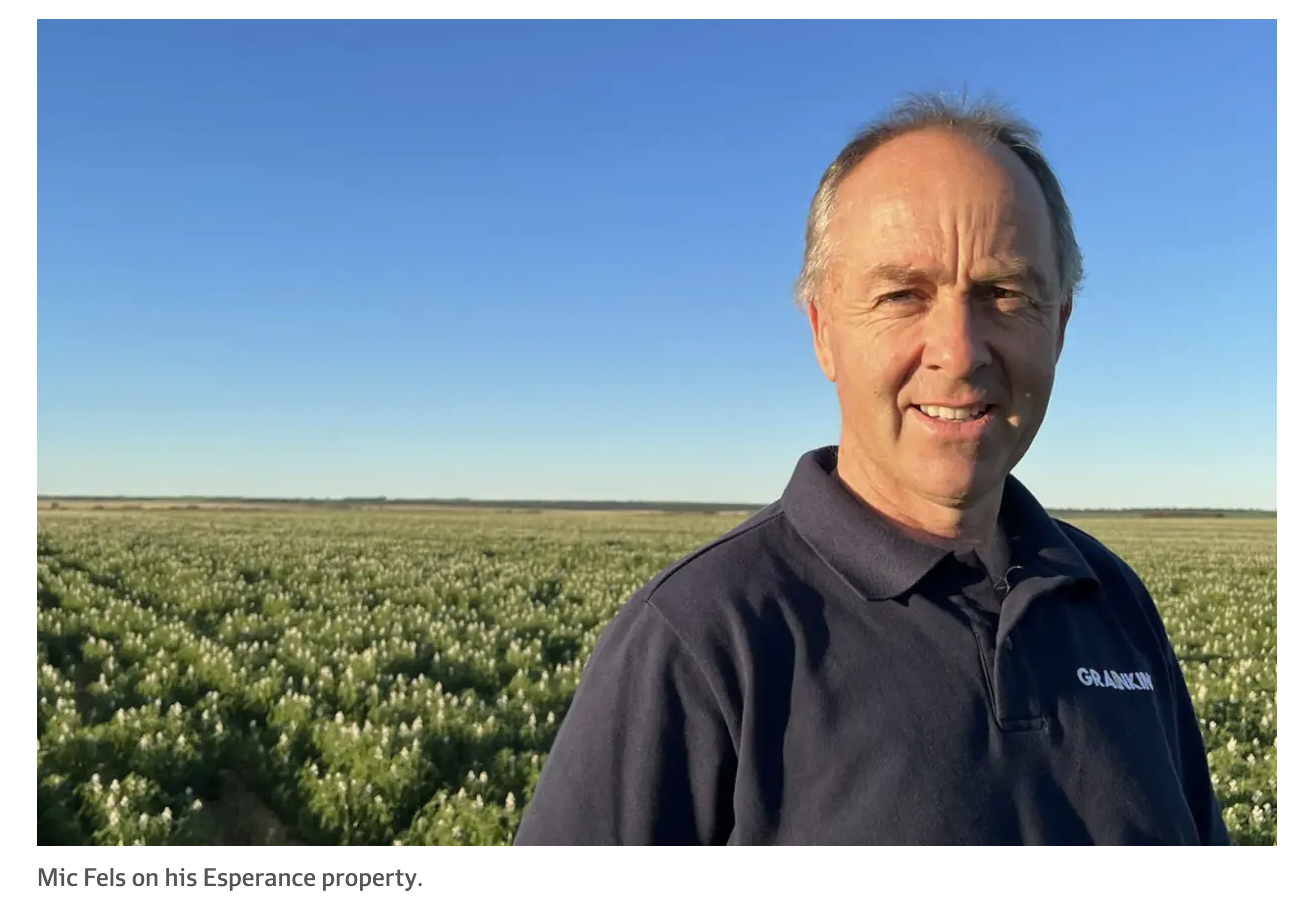

New Indigenous heritage laws set to come into force in Western Australia are “shambolic” and will hold up new mines and food production in the state, according to the explorers and farmers.
But the government says it won’t reconsider or delay the proposal, which is due to take effect on July 1, legislated after the widely condemned destruction of the Juukan Gorge heritage site by Rio Tinto in 2020.
Mining exploration companies say the laws, which apply to all parcels of land exceeding 1100 square metres, will have a profound impact on the search for critical minerals, precious metals and iron ore.
Companies in the exploration stage are also furious that the government, in one of Mark McGowan’s last acts as premier, struck a treaty-like agreement with traditional owners in the northern Goldfields without consultation.
Under that agreement with the Tjiwarl people, miners will have to pay 7 per cent of their exploration spend and $150 per square kilometre to traditional owners. That levy is above what junior miners typically pay, and believed to be based on agreements struck by runaway lithium success story Liontown Resources and BHP’s Nickel West business.

One chief executive of a junior critical mineral player, who spoke on condition of anonymity citing the sensitivity of the issue, said his company had paid nearly $200,000 for an Aboriginal heritage survey, and that heritage-related costs now represented close to one-third of the price tag attached to drilling an exploration hole. He warned the situation would worsen once the new Aboriginal Cultural Heritage Act came into force, making mining and farming slower and costlier.
More than 450 people attended a forum hosted by the Association of Mining and Exploration Companies with officials from the Department of Planning, Lands and Heritage in Perth. There were 170 questions from the floor and only enough time to deal with 30 of them.
Many rivers, creeks and other tributaries are considered ethnographic sites requiring the highest high level of assessment under the new laws, which hand considerable power to groups referred to as Local Aboriginal Cultural Heritage Services.
In what was described as a farcical scene, one mining executive asked whether planting a tree near the Swan River in Perth would require a site inspection by traditional owners and the preparation of a heritage management plan. It would depend on the size of the tree, officials replied.
It is estimated up to 700 farmers attended a similar meeting in Esperance this week, with many alarmed by the prospect of inadvertently breaching the laws that attract penalties of steep fines and possibly jail.
Critics have pointed out that central to the new laws is the impost on miners, farmers and other landholders to engage with a local heritage service at their own expense. But in some regions of the state there are no such services – or if there are, they aren’t able to deal with complex applications.
Government Local Aboriginal Cultural Heritage Services fee guidelines suggest up to $1200 a day for a senior Aboriginal consultant, but there is no cap on what heritage professionals such as anthropologists can bill.
AMEC chief executive Warren Pearce said the forum turned into one of the biggest events it had staged, such was the level of concern. “That room was full because this transition is crucial for the industry. We are getting daily questions from industry of what to do,” he said.
“We are preparing our members for a challenging transition and there are still many unknowns on how the process will work in practice. Exploration companies are especially worried that the transition, and the new process, will slow their progress.
“The reality is that we are moving to a new framework.”
The immediate problem for Mr Pearce is the ambiguity in the wording of the legislation.
“It is still not clear which Aboriginal Heritage Surveys can be relied upon and when traditional owner bodies critical to the new process will be established,” he said. “The Aboriginal Cultural Heritage Act is not just for mining and exploration.
“This applies to property developers, farmers, pastoralists, local and state government, everyone.”
‘Wrong side of history’
But Aboriginal Affairs Minister Tony Buti has accused farmers and other critics of the regime of scaremongering.
Roger Cook, the new Premier, accused the Coalition of “dog whistling” and being “on the wrong side of history” when it unsuccessfully moved for a six-month delay. And some of WA’s biggest miners are reluctant to speak out.
Former WAFarmers grain section president Mic Fels said it would be impossible for farmers to comply with the legislation in its current form, even those dedicated to protecting heritage.

“It’s shambolic and embarrassing for the government,” he said.
“The problem with this act is that it affects every small business that has a land holding, and we’re not equipped for this kind of thing.
“We don’t work on long timelines like a mining company. If they want to dig a hole, they can plan it three years out. We want to dig a hole this afternoon, and that’s important for the way that we run farms.”
Mr Fels noted that, following flooded paddocks last year, farmers dug trenches to drain water so they could see what became a 26 million tonne grain crop. He also warned that all approval systems were prone to corruption and price gouging without proper checks and balances..
